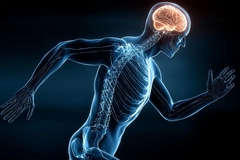Intermittent fasting linked to eating disorders and psychopathology but driving factors remain unclear

18 Nov 2022 --- A study published in Eating Disorders explores how intermittent fasting may have links to eating disorders and psychopathology among adolescents and young adults in Canada. As fasting has grown in popularity over the last couple of years, the study shows patterns of dietary lifestyle changes and eating disorders across genders – although most consistently for women.
The study highlights the strive for the “ideal body shape and size per sociocultural norms,” which motivate people to adopt weight control behaviors. The researchers believe there is a bidirectional relationship between intermittent fasting and eating disorders. The team used a cross-sectional method and could not determine which factor was driving the other.
“However, we know that dieting and dietary restraint are associated with eating disorder behaviors and that among people with eating disorders, dietary restraint and fasting are common despite the actual diagnosis. Therefore, there is likely a bidirectional relationship,” Kyle Ganson, lead author of the study and assistant professor at the Factor-Inwentash Faculty of Social Work, University of Toronto, tells NutritionInsight.
Previous research has shown that fasting is considered an extreme compensatory behavior that tends to drive other risk factors associated with eating disorders, such as perfectionism and low self-esteem. Nevertheless, the study notes that despite scientific data, the media tend to emphasize psychological benefits.
Eating behaviors
The study did not look specifically at different eating disorder diagnoses. It used an examination questionnaire to assess eating disorder attitudes and behaviors.
“We hypothesized that intermittent fasting would lead to eating disorders. Therefore we set our analysis up in that direction. So, we can say that those who participated in intermittent fasting were more likely to experience eating disorder attitudes and behaviors,” says Ganson.
 The study found that for women, intermittent fasting was associated with vomiting and among men with compulsive exercise.The study also found intermittent fasting was associated with greater overall eating disorder attitudes and behaviors among women, men, and transgender/gender non-conforming individuals.
The study found that for women, intermittent fasting was associated with vomiting and among men with compulsive exercise.The study also found intermittent fasting was associated with greater overall eating disorder attitudes and behaviors among women, men, and transgender/gender non-conforming individuals.
“However, we also found that intermittent fasting was associated with greater engagement in binge-eating, compulsive exercise and laxative use,” Ganson details.
The study also found that for women, intermittent fasting was associated with vomiting and among men, with compulsive exercise.
As for nutrient deficiencies playing a role in developing an eating disorder or psychopathological behavior, Ganson says that the study did not look at the impact of lacking different nutrients specifically.
He could, therefore, not specify the impact of nutrient deficiency from fasting on the human body although he says that there is data showing that it affects the human body on a cellular level, it is purported to aid with weight loss, disease prevention, and longevity.
“Within the context of eating disorder attitudes and behaviors, intermittent fasting is seen as a positive behavior given that it can provide weight loss without compromising musculature,” Ganson explains.
He stresses that it is likely that engagement in intermittent fasting is connected with body dissatisfaction and desires to change one’s body based on sociocultural ideals, “both of which we know are connected with eating disorders behaviors.”
Intermittent fasting and scientific evidence
Ganson says that there remains mixed evidence of the effectiveness of intermittent fasting, particularly related to weight loss.
“I would say the people should speak with their medical providers, and potentially contact a dietitian, about intermittent fasting and ensure that they are monitored continuously to avoid maladaptive eating disorder attitudes and behaviors. In general, I think that young people, particularly those within the age range of 16 to 30 from our sample, should avoid it.”
“This developmental time frame is a prime time for the development of health and coping behaviors, as well as the onset of body dissatisfaction, disordered eating behaviors, and eating disorders.”
Toxic eating going viral
Recently, the social media platform TikTok has been in the headlines as a driver of toxic eating behavior. A study found that weight-normative messaging – the idea that weight is the most important measure of a person’s health – dominates on TikTok, as the most popular videos glorify weight loss while positioning food as a means to achieve health and thinness. Intermittent fasting is connected with body dissatisfaction and desires to change one’s body based on sociocultural ideals.
Intermittent fasting is connected with body dissatisfaction and desires to change one’s body based on sociocultural ideals.
The author of the TikTok study also stressed that young people mainly use the platform, and they are “fed content that paints a very unrealistic and inaccurate picture of food, nutrition and health.”
To recover from an eating disorder, Ganson emphasizes the importance of finding support from informed and trained healthcare professionals that can help with the recovery, as it is a complex and challenging process.
“Be sure to have the right support, including from family, partners, and peers if available. Additionally, try to avoid content focused on the body, dieting and exercise that may trigger eating disorder-related thoughts and behaviors,“ he concludes.
Additionally, experts have said that personalized nutrition and nutritional rehabilitation are needed for recovery, as each individual’s needs differ.
By Beatrice Wihlander











